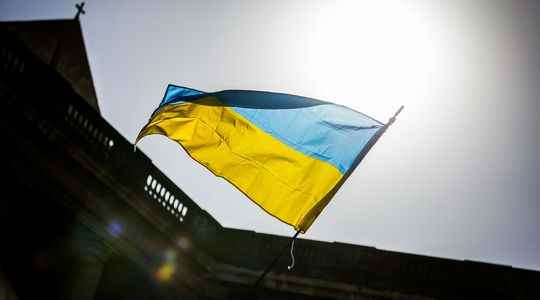CHINA. Xi Jinping is walking on a tightrope
Beijing, which has come very close to Moscow, has neither supported nor condemned its partner, abstaining during the UN vote on the Russian attack in Ukraine. Chinese President Xi Jinping would indeed have a lot to lose.
“For China, the cost of Putin’s adventurism could be high,” writes the New York Times. In addition to the ties with the West that it cannot afford to degrade, China finds itself forced to engage in a balancing act: it must “explain how the invasion does not violate the principle of respect for national sovereignty, which is officially a pillar of its foreign policy”. A test in the relations between the two autocratic powers.
UNITED ARAB EMIRATES. Abu Dhabi abstains
A temporary member of the United Nations Security Council, the United Arab Emirates, like Beijing, chose to abstain during the vote on the resolution condemning the invasion of Ukraine, despite repeated appeals from the United States. United.
“A public display of Abu Dhabi’s dissatisfaction with American policy,” sums up the FinancialTimes. Since Barack Obama’s tenure, relations with Washington have indeed deteriorated, allowing “Russia, China and others to try to fill the vacuum left by the Americans.”
UK. London will welcome more refugees
Assuring that “the United Kingdom would be very generous”, Boris Johnson announced on February 27 that Ukrainians settled on British soil could bring their close family. Problem, the rules to achieve this have been deemed “excessively restrictive”, reports the Guardian.
These only concern spouses, partners for at least two years or parents of children under the age of 18. As a result, the government has promised to let go of some ballast and to relax its conditions of entry into the country.
BRAZIL. Bolsonaro in a tricky position
The Brazilian head of state assured that his country would not take sides in the conflict, despite his vote in favor of the resolution deploring the attack against Ukraine. “It must have something to do with the fact that the invasion […] arrives just a week after his visit to Russia […] to discuss the reform of the UN Security Council, which could allow Brazil to have a permanent seat”, writes the platform Brazilian Report. A controversial visit, after which Jair Bolsonaro declared that Vladimir Putin was looking for “peace”.
SWISS. Bern under pressure for sanctions
Under pressure to toughen its retaliatory measures against the Kremlin, Bern finally gave in and aligned itself on Monday February 28 with those of the Europeans, adopting without “the slightest exception” the whole package of sanctions decreed by the European Union against Russia.
In taking this “difficult” decision, the Federal Council took into account the right of neutrality, explained Ignazio Cassis, the President of the Confederation. “But Russia’s unprecedented military attack on a sovereign European state prompted the government to change its sanctions practice,” the site said. Swiss info.
MALI. Bamako chooses silence
Zero comment: Mali had still not reacted officially on February 28 to the Russian offensive in Ukraine, which “intervenes at a time when Bamako maintains difficult relations with Paris about the presence on its soil of the paramilitaries of the private company Russian Wagner”, analyzes the radio Deutsche Welle.
When announcing the withdrawal of French soldiers from Mali, Emmanuel Macron denounced the “predatory purposes” of this group of mercenaries, close to the Kremlin, and already present in the Central African Republic or Sudan.
UNITED STATES. Biden opts for de-escalation
The American president remained rather stoic on the weekend of February 26 and 27, in the face of the nuclear threats made by Vladimir Putin. Joe Biden “could have gone with the flow and put US forces in Defcon 3, known to moviegoers as the time the Air Force deploys its bombers, and nuclear weapons and submarines are on high alert “, emphasizes the New York Times. The tenant of the White House has, on the contrary, “for the moment, at least, made the choice of de-escalation” by refusing to raise the alert level.
